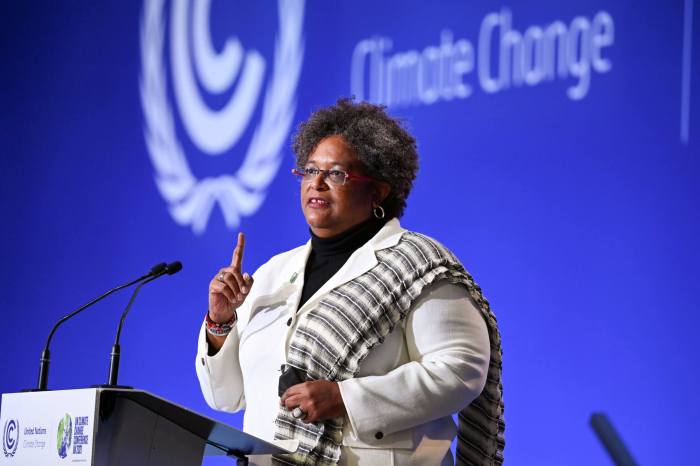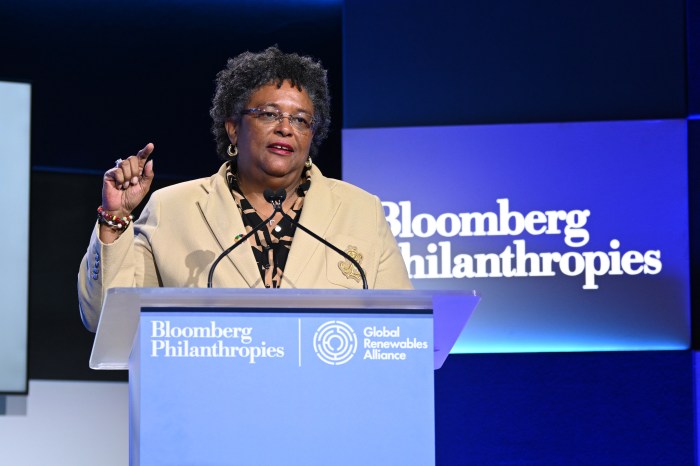In just over a month persons entering and leaving Barbados will have their fingerprints taken as a security measure, but a former attorney general, Dale Marshall, wants Barbadians exempted.
The Barbados government announced a week ago that everyone, except children and holders of diplomatic passports, will have to give their fingerprints when passing through the ports as of April 01, 2016.
Compulsory fingerprinting is the first measure that government said it plans implementing to keep it in line with international requirements for ports of entry and departure, and is to be followed by full face scans later this year.
Since the Feb. 15 announcement, several opinion leaders have taken to the island’s two leading newspapers to voice support and objection.
Marshall, an attorney general in the last Barbados Labour Party administration and now an Opposition Member of Parliament, said that as far as Barbadians are concerned, the move is ‘illegal and a technical absurdity.’
Focusing on the rights of Barbadians, who he noted are entitled to return home, Marshall told the Barbados Today epaper, “A Barbadian citizen has the right to enter his homeland and is not subject to deportation from his homeland.
“His / her entry into Barbados must of necessity be unconditional. If a Barbadian citizen turns up at a port of entry in Barbados with a Barbados passport, he / she must be allowed to enter.”
He said that demanding fingerprints of a Barbadian as a condition of that person entering Barbados, “is an infringement of that person’s constitutional rights.”
Trade unionist and General Secretary of the Unity Workers Union, Caswell Franklyn, said, “If you put that in place for visitors, go right ahead.”
But the veteran union leader made clear that this must not apply to people of the island. “I am a Barbadian. I have a right to come to Barbados without any hindrance. Nobody should be bothering me and giving me any conditions for me to come into Barbados.”
On the other hand, Assistant Commissioner of Police, Erwin Boyce, told the Daily Nation newspaper that he welcomed the new measure.
“It is definitely a positive move and I don’t see it otherwise, given the movement of people from all over the world… These things are important in responding to criminal threats.”
Tourism executive and former Hotel and Tourism Association President, Colin Jordan, supported the new measure, observing that from a security standpoint, the world has changed since the 9/11 terrorist attacks on the United States.
Jordan is however concerned that the fingerprinting and facial scanning procedures could become cumbersome and affect the easy entry and exit of tourists, who are so vital to the Barbadian economy.
Tourism stands out as the bread and butter industry of Barbados, for more than 30 years outmatching the manufacturing and agriculture sectors. Of the 19.7 percent that the island’s tradable productive sectors contribute to the Gross Domestic Product, tourism averages 12 per cent.
“I don’t have an issue with fingerprinting,” Jordan said. But against the backdrop of some 526,400 long stay tourists passing through Barbados’ ports last year, he is concerned about arrivals being stuck in fingerprinting back-up lines. He pointed out that without the new measure there already are bottlenecks at the airport.
“What I would be shivering at is the fact that at this point when there is no fingerprinting taking place, too often we have inordinate delays in immigration, especially at peak times.
Conceding that security at the ports is vital, he noted the importance of the visitors to Barbados, and said, “we have to make sure that whenever this thing is implemented, that is has been tried, tested and that the staffing and all the logistical issues have been ironed out.”
But government is unyielding in its announced plans. Chief Immigration Officer, Erine Griffith, said that these security measures are mandatory under the Immigration (Biometrics) Regulation 2015.






















